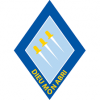IT Support for Schools
WE’VE GOT YOU COVERED
Need a team on site? No Problem!
Need 24/7 remote support? No Problem!
Talking Business team of qualified engineers are here to provide you with the best I.T support for your business.
TALKING SCHOOLS
Bring your own device to work and stay connected.
With our extensive range of phone systems to cater to your school’s needs explore your options here
Have the best connection possible with our superfast broadband offer and leased line options.
More information coming soon.
How Talking Business have helped local Schools
Wycombe Abbey Case Study

In the spring of 2010, Wycombe Abbey School appointed Talking Business to find the ideal solution to their future telephony requirements. We value the relationship that started all those years ago and are proud that it still flourishes today.
Wycombe Abbey is a leading Independent school for girls aged 11-18, who consistently achieve A-level results within the top 3 schools in the UK.
The school’s grounds are home to a large campus, comprising 11 separate buildings – offices, classrooms and boarding houses. The school uses over 350 telephones across the campus.
Back in 2010, Wycombe Abbey’s traditional telephone cabling infrastructure was coming under increasing pressure. Rapid expansion meant the system was close to capacity.
Most of the phones were analogue, running off original voice-cabling laid throughout the campus many years ago. Several parts of the school were using digital telephony, which was riding on the same infrastructure.
One solution would have been to increase current capacity using traditional telephony (analogue and/or digital). The downside was that this would have meant significant investment in laying additional cabling around the campus.
Fortunately, the school had recently invested in new fibre infrastructure. The solution was to use this existing system by deploying VoIP (Voice over IP). This allowed for future cost-effective and flexible deployment of handsets.
However, this solution presented a serious challenge. The proposal to replace the 300 analogue extensions in the boarding houses with SIP handsets and PoE LAN would have meant using VOIP over the new fibre infrastructure. It also would have proved to be expensive.
The Talking Business solution required innovative, sideways thinking. The school would keep the existing analogue handsets but run them across the old voice cabling. This would result in much cheaper replacement costs and minimal disruption during the upgrade process.
Following an initial consultation, Talking Business established the project requirements and priorities for a new telephony solution.
- Any new telephone solution would have to be capable of using IP telephony across the new fibre links between buildings. This would eliminate the cost of any additional inter-building cable runs.
- The solution would have to provide a strong set of telephony features and offer a choice of endpoints to cater for all users (featured handsets, basic handsets and software-based endpoints).
- Ideally, the existing analogue handsets could be re-used.
- Existing voice-cabling, where applicable (for analogue endpoints), could be re-used. This again would result in a substantial cost saving.
- It would be possible to incorporate the existing Nortel Meridian Option 11 Telephone System. This would have the benefit of minimising the initial investment cost. There could be a more gradual migration to the new platform, resulting in minimised disruption and an even spread of cost.
- Currently, approximately 50 Individual direct analogue lines are in use across the school. This is expensive to maintain. Consolidation of these numbers onto SIP numbers, delivered via SIP* trunks over the internet to a SIP-enabled telephone system would eliminate these costs. These savings could be used to fund further investment.
- The schools own ICT team would carry out any administrative add-ons, moves and changes of extensions and system settings.
- Call Management reporting. There is no current facility for reporting on day-to-day telephone usage. The ability to run reports on calls made by individual extensions, with a view to introducing a greater level of accountability, would be a beneficial addition.
Based on the above requirements, Talking Business recommended a solution based upon the SpliceCom Maximiser 5100 Call Server. It delivers the following key features:
Distributed Architecture for all endpoints. This includes analogue handsets located remotely from the main control unit i.e. in each campus building where required. This would eliminate significant re-cabling costs
The server can use any analogue handsets and voice cabling. This will allow re-use of existing analogue handsets and voice-cabling infrastructure. New cable runs in each building will only be needed where additional extension capacity is required and no spare cables exist.
Interoperability with Nortel Option 11 – The Maximiser System links via an integrated DPNSS* connection on each 5100 Call servers. This DPNSS connection enables interoperability with the Nortel Option 11 providing extension-to-extension dialling across the system.
Simple System Architecture – The Maximiser Solution operates on a single central shared database, providing a single point of administration.
Industry leading IP Handsets – the PCS560 PCS570 IP handsets offer cutting-edge and highly intuitive full-colour display IP Handsets. These enable easy access to a greater number of features. Perfect for use by office staff.
Splicecom Vision Call Management has an unparalleled level of reporting for the Maximiser system. This enables enhanced detailed reporting.
Step one
The integration and testing with the Meridian Option 11
Step two
The switch-over of the 300 Analogue extensions. Engineers completed this in a single day and with minimal disruption
Step three
The new Splicecom IP handsets were deployed in a single department to ensure familiarity. They were thoroughly tested throughout the school before being installed elsewhere. Again, this task was carried out by the IT department.
Step four
Between September and Christmas, all the Digital Meridian handsets were replaced department by department. This allowed for fully-focused training and troubleshooting, resulting in few end-user concerns.





